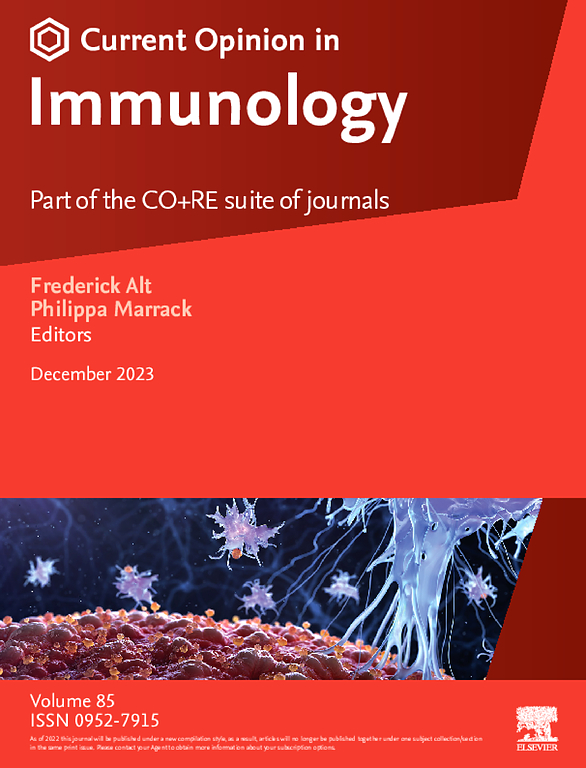我们能治愈狼疮吗?
IF 5.8
2区 医学
Q1 IMMUNOLOGY
引用次数: 0
摘要
近年来,人们对导致系统性狼疮发展的机制有了普遍的了解,但对这种疾病的治疗仍在很大程度上是经验和不令人满意的。针对B细胞和细胞因子的单克隆抗体靶向治疗取得了有限的成功,间充质干细胞和造血干细胞治疗也取得了有限的成功。在过去的几年里,用靶向B细胞的嵌合抗原反应性T细胞(CAR-T细胞)治疗难治性疾病在小患者系列中显示出意想不到的希望,明显的长期和完全缓解疾病。在这一领域的快速进展可能会导致改善T细胞和自然杀伤(NK)细胞治疗患者更容易获得和实用的方法。同时,利用系统生物学和单细胞方法加深对系统性红斑狼疮疾病机制的了解,可能会发现干预疾病发病机制的其他途径,从而为长期治疗或治愈疾病甚至预防易感个体的疾病提供更多选择的希望。本文章由计算机程序翻译,如有差异,请以英文原文为准。
Can we cure lupus?
A general understanding of the mechanisms leading to the development of systemic lupus has emerged over recent years, yet treatment of the illness remains largely empiric and unsatisfactory. Targeted therapy with monoclonal antibodies directed against B cells and against cytokines has met limited success, as has therapy with mesenchymal and hematopoietic stem cells. In the last few years, treatment of refractory disease with chimeric-antigen reactive T cells directed against B cells (CAR-T cells) has shown unexpected promise in small patient series, with apparent long-term and complete remission of disease. Rapid progress in this area is likely to result in improved T cell and natural killer (NK) cell treatment of patients with more readily accessible and practical methods. In parallel, increased understanding of systemic lupus erythematosus disease mechanisms using systems biology and single-cell approaches is likely to uncover additional pathways to intervene in the pathogenesis of disease, raising hopes that additional options will be available for long-term treatment or cure of the disease or even prevention of disease in susceptible individuals.
求助全文
通过发布文献求助,成功后即可免费获取论文全文。
去求助
来源期刊
CiteScore
13.30
自引率
1.40%
发文量
94
审稿时长
67 days
期刊介绍:
Current Opinion in Immunology aims to stimulate scientifically grounded, interdisciplinary, multi-scale debate and exchange of ideas. It contains polished, concise and timely reviews and opinions, with particular emphasis on those articles published in the past two years. In addition to describing recent trends, the authors are encouraged to give their subjective opinion of the topics discussed.
In Current Opinion in Immunology we help the reader by providing in a systematic manner: 1. The views of experts on current advances in their field in a clear and readable form. 2. Evaluations of the most interesting papers, annotated by experts, from the great wealth of original publications.
Current Opinion in Immunology will serve as an invaluable source of information for researchers, lecturers, teachers, professionals, policy makers and students.
Current Opinion in Immunology builds on Elsevier''s reputation for excellence in scientific publishing and long-standing commitment to communicating reproducible biomedical research targeted at improving human health. It is a companion to the new Gold Open Access journal Current Research in Immunology and is part of the Current Opinion and Research(CO+RE) suite of journals. All CO+RE journals leverage the Current Opinion legacy-of editorial excellence, high-impact, and global reach-to ensure they are a widely read resource that is integral to scientists'' workflow.

 求助内容:
求助内容: 应助结果提醒方式:
应助结果提醒方式:


